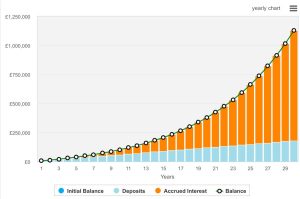Researchers from the Federal Reserve Bank of San Francisco, one of the central bank’s 12 regional entities, are lending support to a 50-year Treasury bond, saying such longer-term debt instruments could provide an attractive opportunity to finance the country’s growing debt in a sustainable way.
The longest-term Treasury bond that investors can currently buy matures in 30 years
TMUBMUSD30Y,
But with the U.S. deficit expected to remain elevated for years, sustainable ways to finance the debt are needed, the researchers said. Treasury’s total outstanding marketable debt reached $21 trillion at the end of 2020, after rising nearly 25% in a single year from $16.7 trillion at the end of 2019.
A 50-year U.S. bond has been under consideration for years. Former Treasury Secretary Steven Mnuchin intended to consider such a duration in 2020, but ditched the plan in March of that year amid a lack of interest. Janet Yellen revived the topic earlier this year during her Senate confirmation hearing to become Treasury secretary. Yellen is the former head of the San Francisco Fed, serving as its president from 2004 to 2010, as well as the former chair of the Federal Reserve before Jerome Powell.
The San Francisco Fed researchers analyzed other countries which already issue the longer maturity, and said they found that the additional costs of introducing 50-year bonds relative to conventional 30-year bonds are likely to be small, on average.
“The results suggest that the additional cost to the Treasury from issuing longer-maturity bonds would be low, similar to the experiences in some other countries,” according to an economic letter released Monday. The paper was written by San Francisco Fed research adviser Jens H.E. Christensen, along with vice president Jose A. Lopez and Paul L. Mussche, a senior quantitative risk specialist. Lopez and Mussche are both in the bank’s Financial Institution Supervision and Credit
Division.
The findings “suggest that extending the maximum maturity of U.S. debt might be a cost-effective complement to issuing conventional 30-year bonds that could open a new sustainable option to help fund the national debt,” they wrote.
On Monday, Treasury yields moved higher across the curve, with the 10-year rate
TMUBMUSD10Y,
rising to 1.49% and 30-year rate
TMUBMUSD30Y,
climbing to 1.89% as all three major stock indexes
DJIA,
SPX,
and
COMP,
also advanced.
This post was originally published on Market Watch






